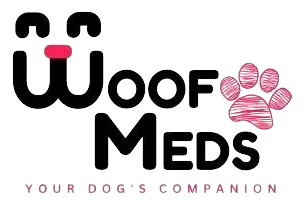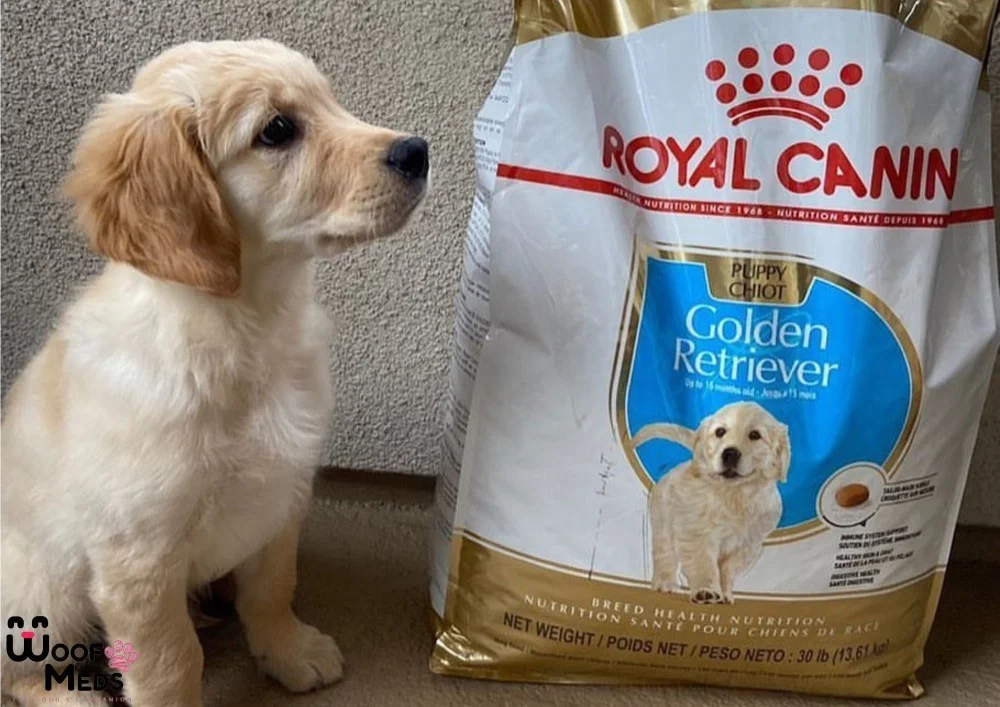Golden Retriever Puppy Nutrition and Diet: A Comprehensive Guide
Golden Retrievers are one of the most popular dog breeds worldwide, known for their friendly demeanor, intelligence, and versatility. When it comes to raising a Golden Retriever puppy, ensuring proper nutrition is paramount to their growth, health, and overall well-being. This comprehensive guide delves into the essentials of Golden Retriever puppy nutrition and diet, offering insights into their dietary needs, the importance of balanced nutrition, feeding schedules, and tips for selecting the right food.
Nutritional Needs of Golden Retriever Puppies
Golden Retriever puppies are highly energetic and require a diet rich in nutrients to support their rapid growth and development. During the first year of life, their bones, muscles, organs, and immune system undergo significant changes, making it crucial to provide them with the right balance of nutrients. Here are the primary nutritional components that are essential for Golden Retriever puppies:
- Proteins: Proteins are the building blocks of life and are crucial for the development of muscles, tissues, and cells. High-quality animal-based proteins, such as chicken, beef, lamb, and fish, should be the main source of protein in your puppy’s diet. Protein should constitute about 22-30% of their diet.
- Fats: Fats provide a concentrated source of energy and are necessary for brain development, healthy skin, and a shiny coat. Omega-3 and Omega-6 fatty acids, found in fish oil and flaxseed, are particularly beneficial for Golden Retrievers. Fats should make up around 12-18% of their diet.
- Carbohydrates: Carbohydrates are an important energy source and help maintain healthy digestion. Whole grains like brown rice, barley, and oats, as well as vegetables like sweet potatoes and peas, are excellent sources of carbohydrates.
- Vitamins and Minerals: These are essential for overall health, supporting functions such as bone growth, immune system strength, and metabolism. Key vitamins and minerals include calcium, phosphorus, vitamin D, and vitamin E.
- Water: Hydration is vital for all living beings, including Golden Retriever puppies. Ensure your puppy has access to fresh, clean water at all times to support their bodily functions and digestion.
Choosing the Right Puppy Food
The market is flooded with various dog food options, making it challenging to choose the right one for your Golden Retriever puppy. Here are some factors to consider when selecting puppy food:
- Commercial vs. Homemade Diets: While some dog owners prefer preparing homemade meals for their puppies, commercial dog foods are specifically formulated to meet the nutritional needs of growing puppies. High-quality commercial dog foods offer a balanced diet and are convenient. However, if you choose to prepare homemade meals, it is advisable to consult with a veterinarian or a canine nutritionist to ensure the diet is nutritionally complete.
- Dry Kibble vs. Wet Food: Both dry kibble and wet food have their pros and cons. Dry kibble is convenient, promotes dental health, and has a longer shelf life. Wet food, on the other hand, is more palatable, contains higher moisture content, and can be easier to digest for some puppies. A combination of both can offer variety and meet your puppy’s preferences.
- Grain-Free vs. Grain-Inclusive: The grain-free diet trend has gained popularity, but it’s essential to approach it with caution. While some dogs may have grain allergies, most puppies can tolerate grains well. Grains provide valuable nutrients and energy. Before opting for a grain-free diet, consult your veterinarian.
- AAFCO Certification: Ensure the puppy food you choose meets the standards set by the Association of American Feed Control Officials (AAFCO). AAFCO-certified foods are formulated to provide complete and balanced nutrition for puppies.
Feeding Schedule and Portion Control
Feeding your Golden Retriever puppy at regular intervals is important to prevent overeating and to ensure they receive consistent nutrition throughout the day. Puppies have smaller stomachs and higher energy needs, so dividing their daily food intake into multiple meals is recommended.
- 8-12 Weeks: During this period, your puppy should be fed four times a day. This frequent feeding schedule supports their rapid growth and high energy levels. Divide the recommended daily food portion into four smaller meals.
- 3-6 Months: As your puppy grows, you can reduce the feeding frequency to three times a day. Continue to monitor their weight and adjust the portion size as needed.
- 6-12 Months: Around this age, you can transition to feeding your puppy twice a day. This schedule can continue into adulthood.
- Portion Control: It is crucial to follow the feeding guidelines provided on the dog food packaging or as recommended by your veterinarian. Overfeeding can lead to obesity, which is a common health issue in Golden Retrievers. Keep an eye on your puppy’s body condition and adjust portions accordingly to maintain a healthy weight.
Supplements for Golden Retriever Puppies
In most cases, a high-quality, balanced puppy food will provide all the necessary nutrients. However, there are situations where supplements might be beneficial:
- Omega-3 Fatty Acids: These can be added to your puppy’s diet to promote healthy skin, a shiny coat, and brain development.
- Probiotics: Probiotics support a healthy digestive system and can be particularly useful during transitions, such as changing diets or moving to a new home.
- Glucosamine and Chondroitin: These supplements support joint health and can be beneficial for large breed puppies like Golden Retrievers, who are prone to joint issues as they grow.
Always consult with your veterinarian before adding any supplements to your puppy’s diet to ensure they are necessary and safe.
Common Dietary Concerns and Considerations
Golden Retriever puppies, like all puppies, may face certain dietary challenges. Being aware of these concerns can help you manage them effectively:
- Food Allergies: Some puppies may develop allergies to certain ingredients, such as chicken, beef, dairy, or grains. Signs of food allergies include itching, skin rashes, digestive issues, and ear infections. If you suspect a food allergy, consult your veterinarian for an appropriate diet plan.
- Sensitive Stomachs: Golden Retrievers are known to have sensitive stomachs. If your puppy experiences frequent diarrhea, vomiting, or gas, it might be due to a dietary issue. Gradually transitioning to a new diet, avoiding table scraps, and choosing easily digestible foods can help alleviate these problems.
- Growth-Related Joint Issues: As a large breed, Golden Retrievers are prone to joint issues like hip dysplasia. Providing a diet that supports healthy growth and weight management can help prevent these problems. Avoid overfeeding and choose a puppy food specifically formulated for large breeds, which usually contains the right balance of calcium and phosphorus.
Transitioning to Adult Food
As your Golden Retriever puppy approaches their first birthday, it will be time to transition them to adult dog food. This transition is important because adult dog food is formulated differently than puppy food, with a different balance of nutrients to support the maintenance of health rather than rapid growth.
- Timing: Most Golden Retrievers can be transitioned to adult food around 12 months of age. However, this can vary depending on the individual puppy’s growth rate and overall health. Some puppies may benefit from staying on puppy food a little longer, especially if they are not yet fully grown.
- Gradual Transition: When transitioning to adult food, it’s important to do so gradually to avoid digestive upset. Start by mixing a small amount of adult food with your puppy’s current food, gradually increasing the proportion of adult food over 7-10 days.
- Monitoring Weight: As you transition to adult food, continue to monitor your dog’s weight and adjust portion sizes as needed to maintain a healthy weight.
Homemade Diets and Raw Feeding
While commercial dog food is convenient and generally well-balanced, some dog owners prefer to prepare homemade meals for their Golden Retrievers or follow a raw food diet. These options require careful planning to ensure nutritional adequacy.
- Homemade Diets: If you choose to prepare homemade meals, it is essential to consult with a veterinarian or a canine nutritionist to create a balanced diet plan. Homemade diets should include high-quality protein sources, healthy fats, carbohydrates, and essential vitamins and minerals. Supplements may be necessary to ensure your puppy receives all the nutrients they need.
- Raw Feeding: The raw food diet, also known as the BARF (Biologically Appropriate Raw Food) diet, consists of raw meat, bones, fruits, and vegetables. Proponents of raw feeding argue that it mimics the natural diet of dogs’ ancestors. However, raw feeding can pose risks, including bacterial contamination and nutrient imbalances. If you choose this route, it’s important to work closely with a veterinarian to ensure your puppy’s diet is safe and nutritionally complete.
Hydration and the Importance of Water
Water is a crucial component of your Golden Retriever puppy’s diet. Proper hydration supports digestion, nutrient absorption, and overall health. Here are some key points to keep in mind:
- Access to Fresh Water: Ensure your puppy has access to fresh, clean water at all times. Puppies can become dehydrated quickly, especially during play or warm weather.
- Water Intake: Monitor your puppy’s water intake to ensure they are drinking enough. Puppies typically require more water than adult dogs due to their high activity levels and growth. On average, puppies need about half a cup of water every two hours.
- Signs of Dehydration: Be aware of the signs of dehydration, which include lethargy, dry gums, sunken eyes, and loss of skin elasticity. If you suspect your puppy is dehydrated, contact your veterinarian immediately.
Treats and Snacks: What’s Safe and What to Avoid
Treats and snacks are an essential part of training and bonding with your Golden Retriever puppy. However, it’s important to choose healthy treats and to use them in moderation to avoid overfeeding.
- Healthy Treats: Choose treats that are low in calories, high in nutrients, and made from wholesome ingredients. Some great options include small pieces of cooked chicken, carrots, apples (without seeds), and commercial dog treats formulated for puppies.
- Avoid Harmful Foods: Some human foods are toxic to dogs and should be avoided at all costs. These include chocolate, grapes, raisins, onions, garlic, and anything containing xylitol (a sugar substitute). Always research or consult with your veterinarian before offering any new food to your puppy.
- Portion Control: Treats should make up no more than 10% of your puppy’s daily caloric intake. Over-treating can lead to weight gain and nutritional imbalances.
Conclusion
Proper nutrition is the foundation of a healthy and happy life for your Golden Retriever puppy. By understanding their unique dietary needs and making informed choices about their diet, you can support their growth, development, and overall well-being. Whether you choose commercial dog food, homemade meals, or a raw diet, the key is to provide balanced nutrition, monitor their health, and consult with your veterinarian regularly.
Remember, every Golden Retriever puppy is unique, and their dietary needs may change as they grow. By staying attentive to their nutritional requirements and being proactive in their care, you can ensure that your puppy grows into a strong, healthy, and vibrant adult dog. With the right nutrition, your Golden Retriever will not only thrive but also bring joy and companionship to your life for many years to come.
FAQ
1. How often should I feed my Golden Retriever puppy?
Golden Retriever puppies should be fed multiple times a day to meet their energy and growth needs. Here’s a general guideline:
- 8-12 weeks: 4 meals per day.
- 3-6 months: 3 meals per day.
- 6-12 months: 2 meals per day.
As your puppy grows, you can gradually reduce the frequency of meals. Always consult your veterinarian for personalized advice.
2. What kind of food is best for Golden Retriever puppies?
High-quality commercial puppy food specifically formulated for large breeds is ideal. Look for food that is AAFCO-certified, indicating it meets the necessary nutritional standards. Ensure it includes high-quality animal-based proteins, healthy fats, and essential vitamins and minerals. You can also consult your vet about whether dry kibble, wet food, or a combination is best for your puppy.
3. Can I give my Golden Retriever puppy homemade food?
Yes, you can, but it requires careful planning to ensure the diet is nutritionally balanced. Homemade diets should include high-quality proteins, healthy fats, carbohydrates, and essential vitamins and minerals. It’s advisable to consult a veterinarian or a canine nutritionist to create a balanced meal plan tailored to your puppy’s needs.
4. Should I feed my puppy a grain-free diet?
Grain-free diets are not necessary for most puppies unless they have a specific allergy to grains, which is relatively rare. Grains provide valuable nutrients and energy. Before switching to a grain-free diet, consult your veterinarian to ensure it’s the right choice for your puppy.
5. How do I know if my Golden Retriever puppy is getting the right amount of food?
Monitoring your puppy’s body condition and weight is key. You should be able to feel their ribs without seeing them, and they should have a defined waist. Overfeeding can lead to obesity, which is a common issue in Golden Retrievers. Follow the feeding guidelines on the dog food packaging and adjust portions as needed. Regular veterinary check-ups will also help ensure your puppy is growing appropriately.
6. Can I give my Golden Retriever puppy treats?
Yes, but treats should be given in moderation and should not make up more than 10% of your puppy’s daily caloric intake. Opt for healthy, low-calorie treats made specifically for puppies. Avoid harmful human foods like chocolate, grapes, and anything containing xylitol.
7. What foods should I avoid feeding my Golden Retriever puppy?
Certain foods are toxic or harmful to puppies and should be completely avoided. These include:
- Chocolate
- Grapes and raisins
- Onions and garlic
- Xylitol (found in sugar-free gum and candy)
- Macadamia nuts
- Alcohol
- Raw dough with yeast
- Cooked bones
- Spicy foods
Always research or consult with your vet before introducing any new food to your puppy.
8. When should I transition my Golden Retriever from puppy food to adult food?
Most Golden Retrievers can be transitioned to adult dog food around 12 months of age. The timing can vary depending on your puppy’s growth rate. Transition gradually by mixing the adult food with the puppy food over 7-10 days to avoid digestive upset.
9. Should I add supplements to my Golden Retriever puppy’s diet?
Most high-quality commercial puppy foods are formulated to provide all necessary nutrients. However, in some cases, supplements like Omega-3 fatty acids, probiotics, or glucosamine may be beneficial. Always consult your veterinarian before adding any supplements to your puppy’s diet.
10. How much water should my Golden Retriever puppy drink?
Puppies need plenty of water to stay hydrated, especially given their high activity levels. On average, puppies need about half a cup of water every two hours. Ensure fresh, clean water is always available, and monitor their intake, especially during play or in warm weather.
11. What should I do if my puppy has a sensitive stomach?
Golden Retrievers are known to have sensitive stomachs. If your puppy frequently experiences digestive issues, such as diarrhea or vomiting, consider feeding them easily digestible foods and avoid sudden changes in diet. Gradually transition to any new food and consult your veterinarian to identify potential food intolerances or allergies.
12. Can I feed my Golden Retriever puppy raw food?
Raw feeding is an option, but it comes with risks such as bacterial contamination and nutritional imbalances. If you choose to follow a raw food diet, work closely with a veterinarian or canine nutritionist to ensure it’s balanced and safe for your puppy.
13. What should I do if my puppy has eaten something harmful?
If your puppy has ingested something toxic or harmful, contact your veterinarian immediately or seek emergency veterinary care. Quick action is crucial in preventing serious health issues.
14. How do I prevent my Golden Retriever puppy from becoming overweight?
To prevent obesity, monitor your puppy’s weight and body condition regularly. Avoid overfeeding, stick to the recommended portion sizes, and limit treats. Regular exercise and play are also essential to maintain a healthy weight.
15. What are the signs of a healthy diet in a Golden Retriever puppy?
A healthy diet will result in a puppy with:
- A shiny, soft coat
- Healthy skin
- Regular, firm stools
- Steady, appropriate weight gain
- High energy levels and playfulness
- Strong, well-formed muscles
Regular veterinary check-ups will also confirm that your puppy is thriving on their current diet.



